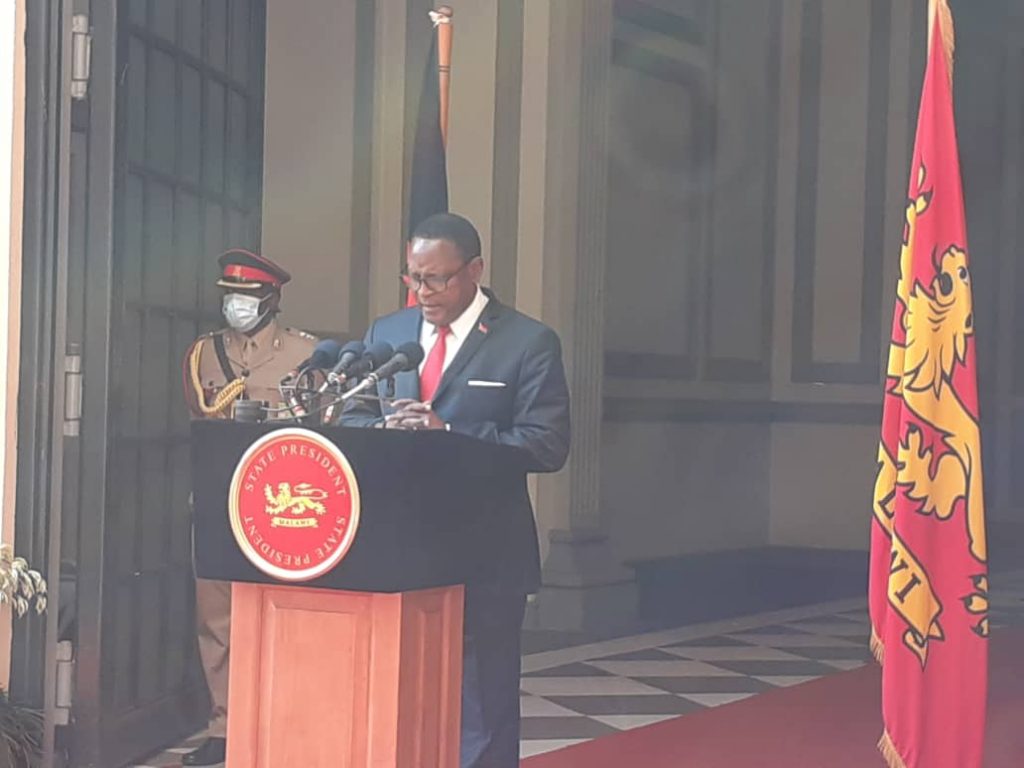BY IDRISS ALI NASSAR

President Chakwera ought not to be too worried about the pushback his last address received from a cross-section of Malawians.
He is trying to lead us to finding solutions during a time of complexities and many unknowns. No one country—no one leader—has been ultimately successful in taming the COVID monster, so there isn’t much of a blueprint to follow up on. Our leaders will hit-and-miss as we go along, and that is OK.
Chakwera’s leadership will not be undermined by not having the perfect solution to the pandemic, because nobody does. If anything, it will be undermined by NOT working at—and leading on—finding reasonable control and containment measures. Of course, in the quest for solutions, there are going to be a range of different opinions about the best course of action to take. That, too, is OK and should be encouraged.
Nobody has a monopoly of wisdom.Could he have done his address differently? Yes.
Does different necessarily mean better? NO.
In doing it differently; to reassure and settle a restless nation, the president could have first had the emergency meeting with his Taskforce on Covid-19, before addressing the nation.
His address to the nation would then be a communication of outcomes of the meetings/consultations already done and the immediate set of restrictions—no matter how tough—necessary to halt the rapidly escalating case numbers, ease the pressure on our public hospitals and to protect the people.
This is an emergency. We are facing a public health crisis of epic proportions and a real existential threat; immediate and decisive action needed to have been taken.
The people of Malawi needed to have been reassured by a set of specific remedies that the president was prescribing.
On a day that the devastating impact of the disease had hit hard with the death of two prominent cabinet ministers, the national mood was ripe to receive, and be guided, by specific directives from the president.
They didn’t come, and that was a missed opportunity. At the end of his address, it was unclear what were the exact control and containment measures the president was prescribing, and how the measures would impact individuals, families and communities.
In crisis communications, it always helps to precisely frame the problem and focus on specific solutions to it. Obfuscation only leads to confusion, and confusions leads to poor uptake of the prescription.
There were important proposals in the president’s address, but they were mired in generalizations that, by the end of his address, the focus was lost on what, exactly, the president wanted Malawians to do.
It is understandable that people want quick-fix, hypodermic needle solutions, and it is not hard to see why. They are scared, worried and anxious.
The president, too, given the devastating loss of his close allies in the past few days should be worried, concerned and scared.
But what should comfort us during this dark and difficult period is that we have a president with the right temperament, a steady hand and a cool head.
These are a set of admirable qualities that should enable him to make appropriate judgment calls under increasingly complex, and confusing, circumstances.
We pray for better days ahead.

